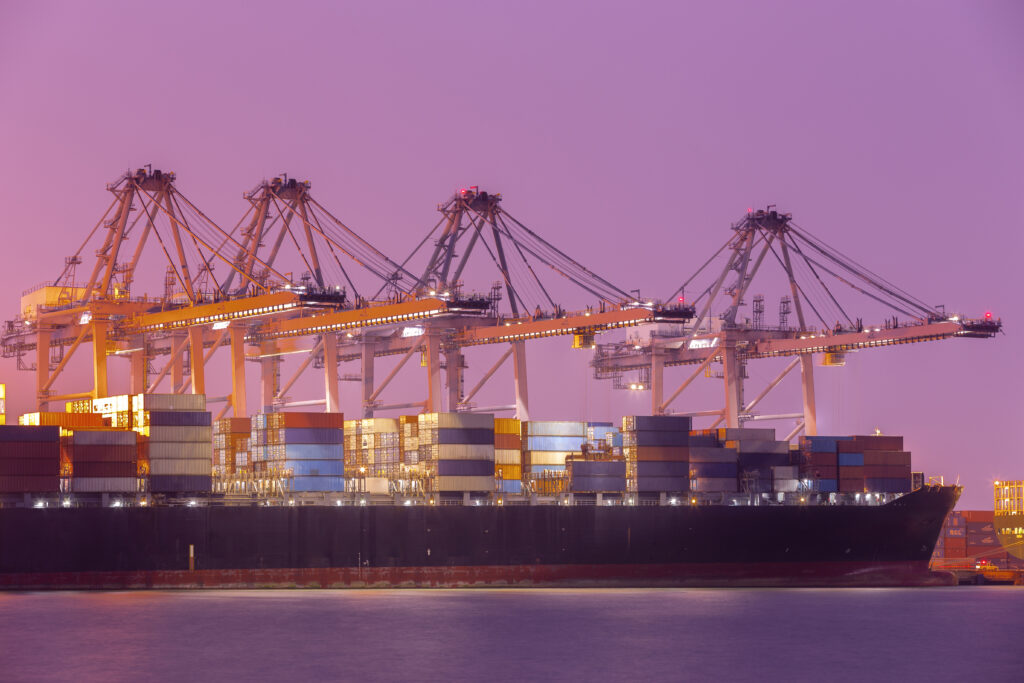- Home
- Online & Offline Courses
- Why Mims?
- Results
- Gallery
- Learning Management
- Brochure
- Blog
- Contact Us
The Importance of Port Management Courses in the Global Shipping Industry
Introduction:
Transporting commodities across huge oceans and seas is the responsibility of the global shipping industry, which serves as the backbone of international trade. Effective port management is becoming more and more important as this sector develops and grows. Ports are important hubs in the global supply chain, and port management courses are essential in providing workers with the information and abilities needed to ensure their successful functioning. This blog examines the value of port management education and how it affects the effectiveness and prosperity of the world’s shipping sector.
Understanding Port Management
Port management is a broad term that includes a variety of tasks like managing supply chains and logistics, coordinating the shipping and receiving of commodities, supervising port operations, and making sure that international regulations are followed. An in-depth knowledge of logistics and supply chain management, marine legislation, logistics, environmental sustainability, and cutting-edge technology systems is necessary for effective port administration.
The Growing Complexity of Port Operations
The complexity of port operations rises in parallel with the volume of global trade. To stay competitive, ports need to be able to accept bigger ships, handle more cargo, and guarantee short turnaround times. This calls for highly qualified port managers who can improve productivity, simplify processes, and adjust to shifting market conditions.

Key Benefits of Port Management Courses
1. Comprehensive Knowledge and Skills
Comprehensive understanding of the numerous aspects of port operations is provided by port management courses. Environmental policies, supply chain management, port logistics, and maritime economics are some of the subjects covered in these programs. Students acquire a comprehensive understanding of the sector, giving them the tools necessary to efficiently oversee port operations.
2. Enhanced Operational Efficiency
Students that pursue education in port management learn how to increase productivity and optimize operations. Best practices for controlling cargo flow, cutting turnaround times, and integrating cutting-edge technologies are the main topics of the courses. For ports hoping to improve their competitiveness and operational efficiency, this information is essential.
3. Regulatory Compliance
The shipping sector is highly regulated, and ports are bound by a lot of international rules and regulations. Students enrolled in port management courses will gain a thorough awareness of these requirements, enabling them to successfully navigate the legal environment and uphold compliance.
4. Environmental Sustainability
Environmental responsibility and operational efficiency need to be balanced in modern port administration. This field’s courses have a strong emphasis on environmentally friendly actions like cutting emissions, controlling waste, and deploying green technology. This information is becoming more and more crucial as ports come under increasing pressure to reduce their environmental effect.
5. Career Advancement
Port management courses provide career progression chances for persons who are currently employed in the shipping business. Increased income potential, more responsibility, and higher-level positions can result from specialized schooling. Furthermore, in a competitive employment market, a formal qualification in port management helps set individuals apart.
The Role of Technology in Port Management
The worldwide maritime sector is changing due to technology, and port management is no different. Contemporary ports employ cutting-edge technologies like automation, artificial intelligence, and data analytics to optimize workflows and augment productivity. These technologies are frequently covered in port management courses, enabling students to fully utilize their potential in practical settings.
Conclusion
International trade depends heavily on the global shipping sector, and the prosperity of this sector depends on effective port management. The thorough education and specific abilities required to negotiate the complexities of this fast-paced industry are provided by port management courses. Through the promotion of environmental sustainability, regulatory compliance, and operational efficiency, these courses are essential in equipping the upcoming generation of port managers to fulfill the expectations of the global shipping sector. The need for specialist education in port management will only increase as the field develops, making it an essential investment for aspirant professionals.


